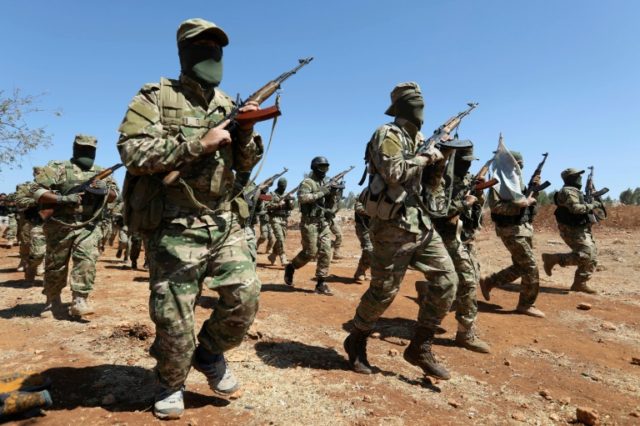President Donald Trump on Monday warned Syrian President Bashar Assad and his allies Russia and Iran on not to “recklessly attack” Idlib province, one of the last strongholds of resistance against Assad’s regime. The Kremlin dismissed Trump’s warning on Tuesday, describing Idlib as a “nest of terrorism” that must be cleaned out by Syria’s armed forces.
A massive military operation against Idlib would jeopardize three million civilian lives and potentially trigger a new flood of refugees out of Syria, as President Trump indicated in his Monday message on Twitter:
U.S. Ambassador to the United Nations Nikki Haley supported Trump, warning chemical weapons could be deployed in the Idlib operation:
“We don’t see any way that significant military operations are going to be beneficial to the people of Syria. If major military operations take place we can expect humanitarian catastrophe and I think we would all want to see that be avoided,” Joint Chiefs of Staff Chairman Gen. Joseph Dunford warned.
These warnings are not just emanating from the Trump administration. U.N. special envoy to Syria Staffan de Mistura said on Tuesday that panic is spreading across Idlib as word spreads of a major assault planned by the Assad regime to begin on September 10.
Mistura pleaded with Syria’s allies to “look each other in the eyes” and exert all possible pressure on Assad to avoid a humanitarian tragedy, offering to travel to Idlib himself to negotiate with rebel and jihadist forces entrenched there. He also echoed Haley’s warning that gas weapons could be deployed by any side in a pitched battle for control of the province.
Kremlin spokesman Dmitry Peskov waved aside the Trump administration’s warnings on Tuesday.
“Just to speak out with some warnings, without taking into account the very dangerous, negative potential for the whole situation in Syria, is probably not a full, comprehensive approach,” said Peskov.
“A fairly large group of terrorists has settled there and of course this leads to a general destabilization of the situation. It undermines attempts to bring the situation onto the track of a political-diplomatic settlement. We know that Syria’s armed forces are preparing to resolve this problem,” he said.
Iranian Foreign Minister Mohammad Javad Zarif expressed confidence on Tuesday that Idlib can be cleansed of “terrorists” with minimal civilian suffering. He claimed President Trump was taking advantage of the situation in Idlib to push his own policy agenda.
“Americans have not shown a good record of their fight against extremism and terrorism,” Zarif charged.
“We will try to prevent any damage to the Syrian people and complete the process of clearing extremists,” he said.
Turkey appears to be the interested party in Syria most apprehensive about the coming battle for Idlib. President Recep Tayyip Erdogan promised last week to work with Russia and Iran to “prevent another Aleppo-like disaster,” referring to the terrible siege of another Syrian city.
“There are concerns over an imminent offensive into Idlib. We are in efforts to stop it,” Turkish Foreign Minister Mevlut Cavusoglu said during meetings with European Union foreign ministers on Friday.
Turkey’s Hurriyet Daily News reported on Saturday that Turkish businessmen who have been doing business in Idlib report their exports have all but ceased as opposition fighters begin blowing up bridges and digging trenches to repel the Syrian government’s advance.
Another Turkish newspaper, Yeni Safak, reported on Sunday that Turkish warships in the Mediterranean have gone on high alert as the offensive against Idlib looms.
The London-based Syrian Observatory for Human Rights said on Tuesday that Russian airstrikes against insurgent positions in Idlib have resumed after ceasing on August 15.
Russian President Vladimir Putin and Turkish President Recep Tayyip Erdogan are scheduled to meet with Iranian President Hassan Rouhani in Tehran on Friday to discuss the situation in Syria.

COMMENTS
Please let us know if you're having issues with commenting.